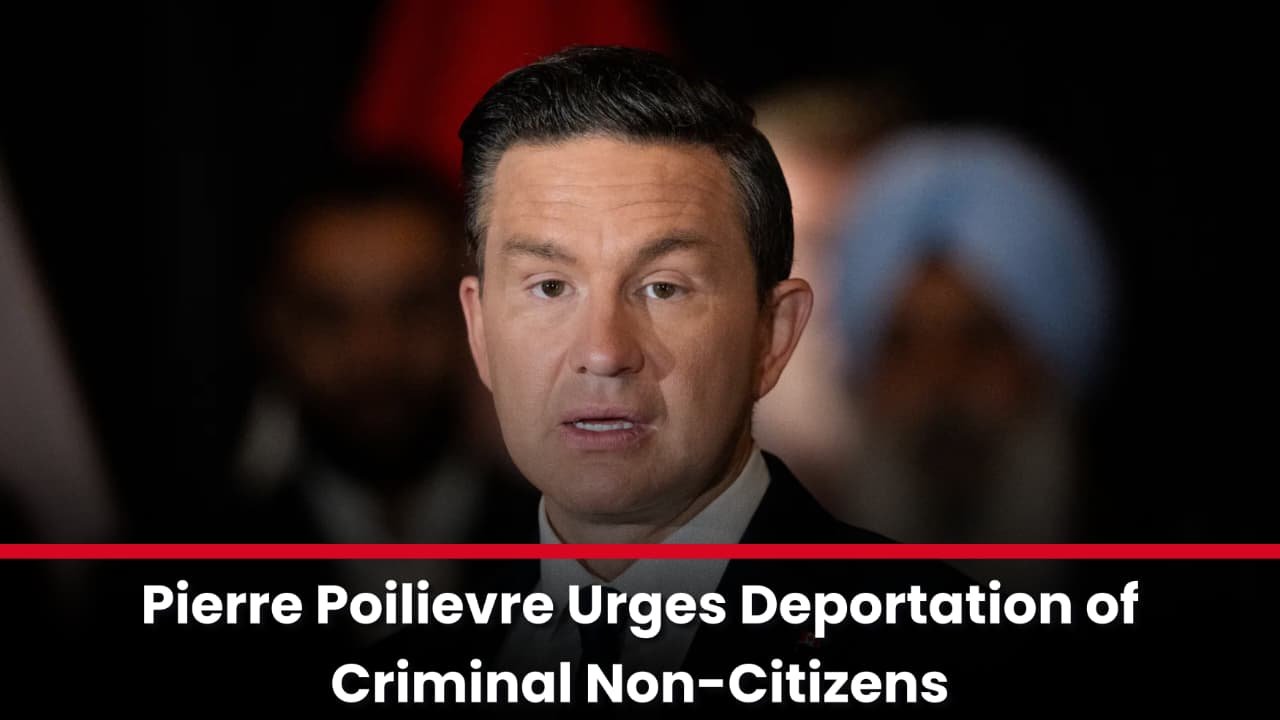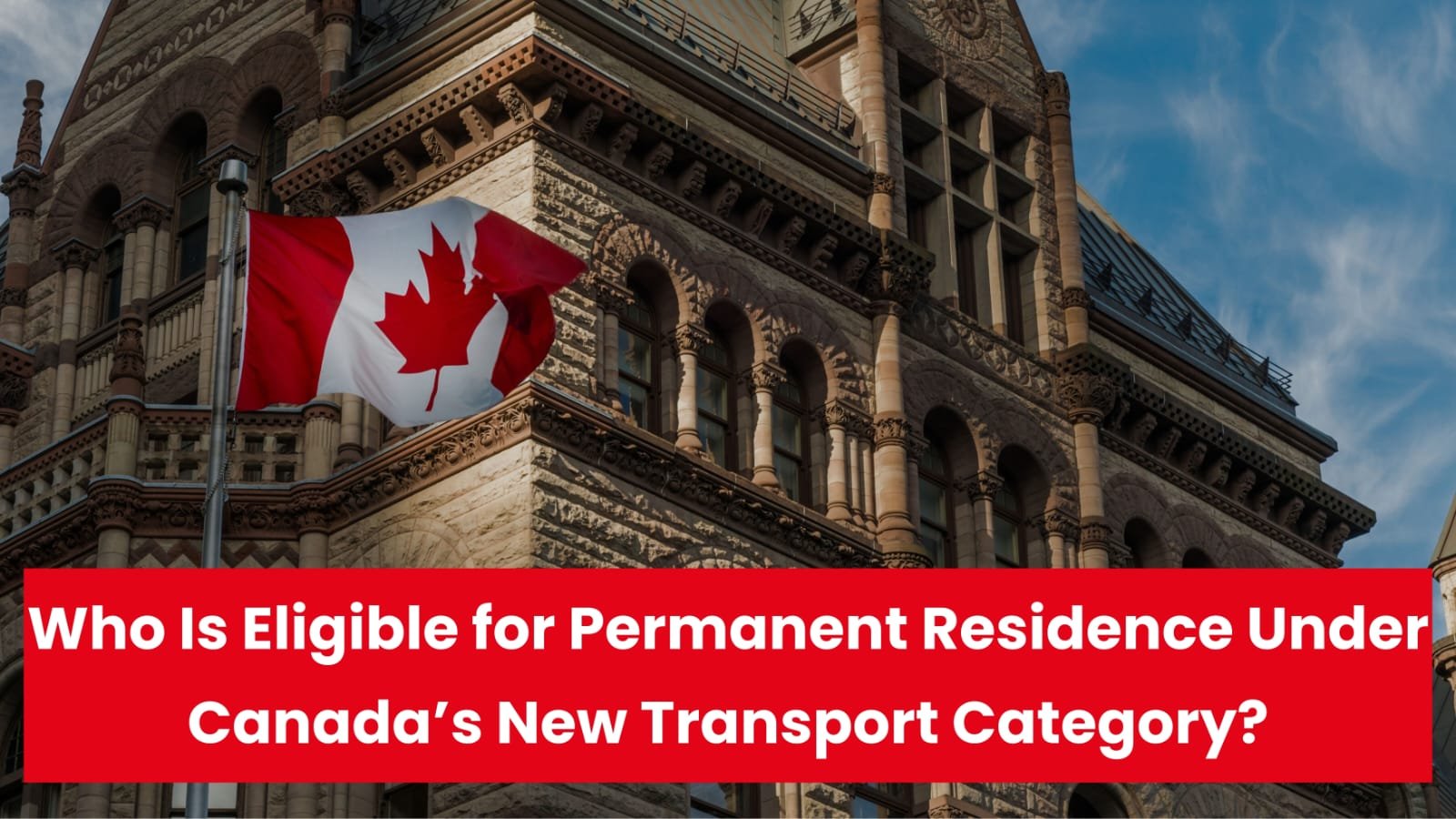On August 20, 2025, Pierre Poilievre, leader of the Conservative Party of Canada, marked his return to the House of Commons following a by-election win in Battle River-Crowfoot by reigniting a heated national debate. His bold policy proposal called for the immediate deportation of non-citizens who commit crimes in Canada, a stance aimed squarely at addressing public concerns surrounding immigration, crime, and national identity.
Poilievre made the announcement during his first press conference after the by-election, capturing the spotlight in a country still reeling from the results of the April 2025 federal election. In that election, the Liberal Party, led by Prime Minister Mark Carney, secured a minority government, putting Poilievre in the position of a powerful opposition leader.
This article delves into the context of Poilievre’s deportation policy, the potential ramifications of such a move, and the reactions it has stirred across Canada, all framed within the broader backdrop of Canada’s shifting political landscape.
Poilievre’s Policy: A Call for Swift Action
Canada’s immigration system has long been under scrutiny, especially following the 2024 data showing over 2.8 million non-permanent residents in the country, including international students and temporary workers. Poilievre’s policy, announced on August 20, 2025, demands that “non-citizens who commit crimes in Canada need to face prison and be deported.”
He pointed to violent crimes, vandalism, and hate crimes, particularly those associated with pro-Palestinian protests, as examples of offenses warranting deportation. Poilievre emphasized, “If someone comes here on a student visa or temporary work permit and starts firebombing coffee shops or synagogues, they should be arrested and sent back immediately.”
This proposal is consistent with Poilievre’s earlier promise to cap immigration at 250,000 annually, a marked reduction compared to the Liberal target of 395,000 for 2025. The policy also aligns with the Immigration and Refugee Protection Act (IRPA), which already allows for the deportation of non-citizens convicted of serious crimes (those carrying a maximum penalty of seven years or a sentence of six months or more).
However, Poilievre has expressed frustration with bureaucratic delays and lenient enforcement, calling for an expedited process, additional funding for the Canada Border Services Agency (CBSA), and stricter oversight of temporary visa holders to prevent criminal behavior.
Public Sentiment: A Divided Nation
Poilievre’s announcement has ignited passionate debates, particularly on social media. Supporters, especially on platforms like X, view the policy as a much-needed safeguard for Canadian citizens. One post asking, “Do you agree with Pierre?” attracted thousands of responses, many of which echoed sentiments such as, “Criminals don’t belong here, period.”
Polling data, including an October 2024 survey by Abacus Data, shows growing concerns among the public about the strain immigration places on housing and public services, lending support to Poilievre’s position.
On the other hand, critics argue that the policy risks unfairly targeting immigrants and undermining fundamental due process rights. The National Council of Canadian Muslims (NCCM) has spoken out against Poilievre’s references to “hate marches,” drawing comparisons to the divisive populism of figures like Donald Trump in the U.S.
Many also accuse Poilievre of scapegoating newcomers for broader societal issues. Advocacy groups like the Migrant Workers Alliance for Change have warned that the policy could harm vulnerable populations, pointing out that Poilievre’s family history—his wife’s uncle, an undocumented immigrant who gained residency—suggests a selective approach to immigration.
In the wake of the 2025 federal election, in which the Liberals won a minority government and the NDP lost official party status, Poilievre’s proposal has become a rallying cry for voters disillusioned by the Liberals’ immigration policies. However, it also risks alienating more moderate Conservatives and immigrant communities who may view it as discriminatory.
Legal Feasibility: Challenges and Opportunities
Poilievre’s plan for deporting criminal non-citizens taps into the existing provisions of the IRPA but seeks to speed up enforcement. Currently, the CBSA faces a backlog of over 10,000 removal orders, with judicial reviews and appeals contributing to delays.
To address these issues, Poilievre proposes redirecting funds from other government initiatives, such as the Liberal gun buyback program, to strengthen CBSA operations. However, immigration experts caution that such expedited deportations could violate due process, especially when applied to broadly defined categories like “hate crimes.”
Legal analysts point out that defining terms such as “hate marches” could be legally problematic, potentially encroaching on political speech. Furthermore, Poilievre’s focus on combating antisemitism, in light of a 2024 B’nai Brith Canada report documenting over 6,000 hate-related incidents, has raised concerns that the policy may overlook other forms of racism, such as Islamophobia or anti-Indigenous sentiment.
The NCCM has called for clearer definitions and safeguards to ensure that the policy does not result in discriminatory enforcement.
Political Strategy: Capitalizing on Post-Election Momentum
Poilievre’s deportation policy is a strategic move to build on the momentum gained from his by-election victory. Despite losing his seat in Carleton during the April 2025 federal election, his return to Parliament via Battle River-Crowfoot has revitalized his leadership.
The election results—producing a polarized federal landscape with a Liberal minority and a diminished NDP—signal a shift toward a two-party system, which enhances the significance of Poilievre’s rhetoric. His focus on crime and immigration taps into growing public frustration, as shown by the 2024 Abacus Data survey indicating widespread concern about the economic impact of immigration.
While Poilievre avoids directly comparing himself to populist leaders like Donald Trump, his approach shares some similarities. Critics, including the NCCM, accuse him of employing divisive tactics, but Poilievre frames his policy as a defense of Canadian safety and sovereignty, particularly appealing to voters in Conservative strongholds like Alberta and Ontario.
The Road Ahead: Shaping Canada’s Political Future
With the Liberal Party forming a minority government and dependent on potential alliances with the Bloc Québécois or NDP, Poilievre’s deportation policy places the Conservatives in a strong opposition position.
The success of Poilievre’s policy will depend on how he addresses key questions: How will “serious crimes” be defined? What safeguards will be put in place to prevent abuse of power? How will the necessary funding be secured?
As Poilievre presses forward with immigration as a wedge issue, his policy is likely to continue shaping Canada’s political discourse. It resonates with voters who feel alienated by rising crime and economic challenges but risks exacerbating divisions in a nation founded on diversity and inclusion.
Ultimately, Poilievre’s deportation proposal could define the Conservative Party’s stance on immigration for years to come, challenging the Liberals’ minority government and testing the limits of justice and fairness in Canada’s immigration system.
As the debate over immigration and crime intensifies, it’s crucial to understand the broader implications of policy changes, especially for businesses and individuals affected by immigration law. If you’re navigating these complex issues, seeking expert advice is essential.
For those looking for professional guidance, visit Cikh Consulting, a trusted resource offering expert consultation on immigration, legal compliance, and policy navigation. Whether you’re a business, a community leader, or an individual, Cikh Consulting provides tailored solutions to help you understand and manage the evolving landscape of immigration policy in Canada.





